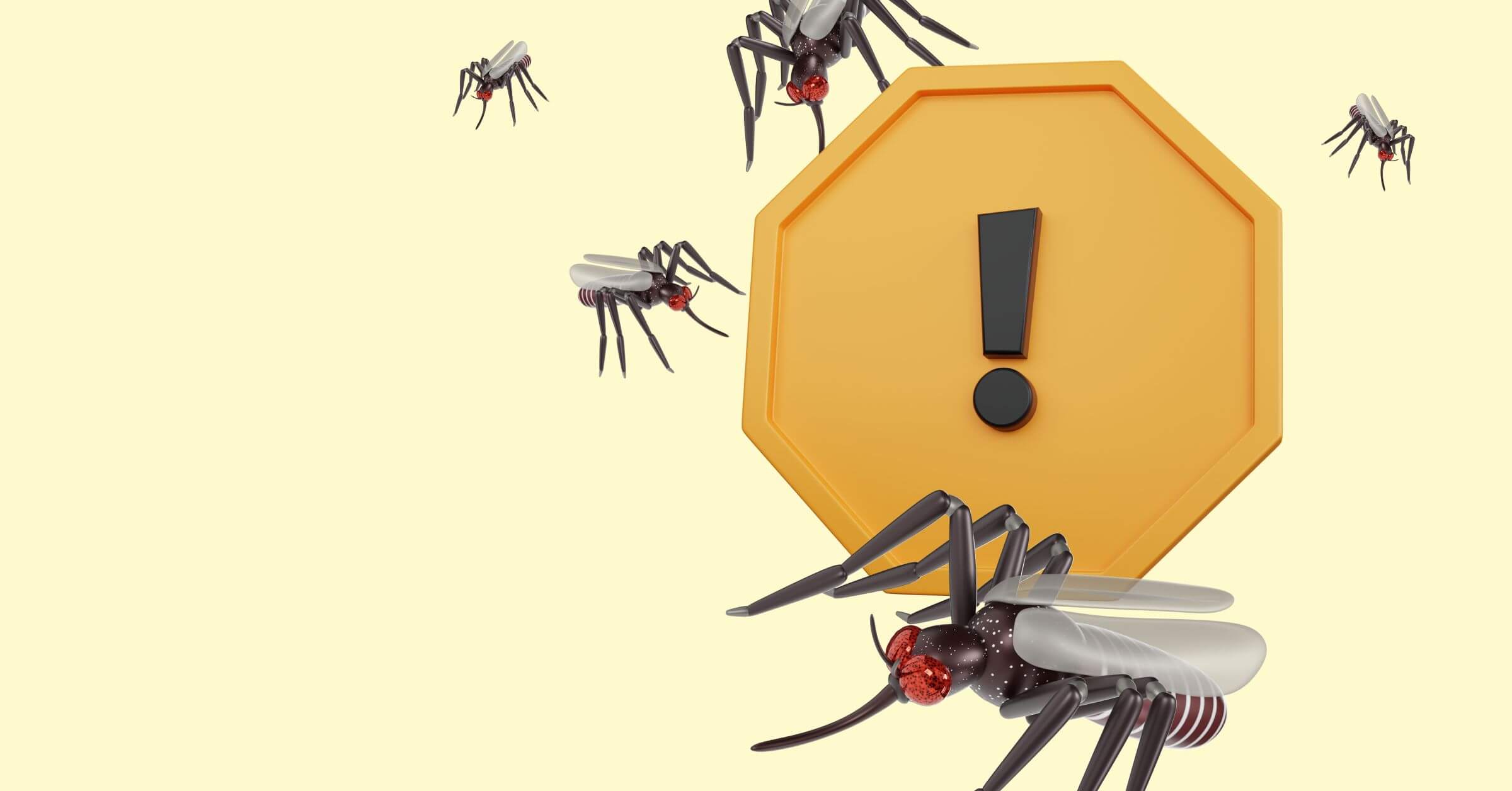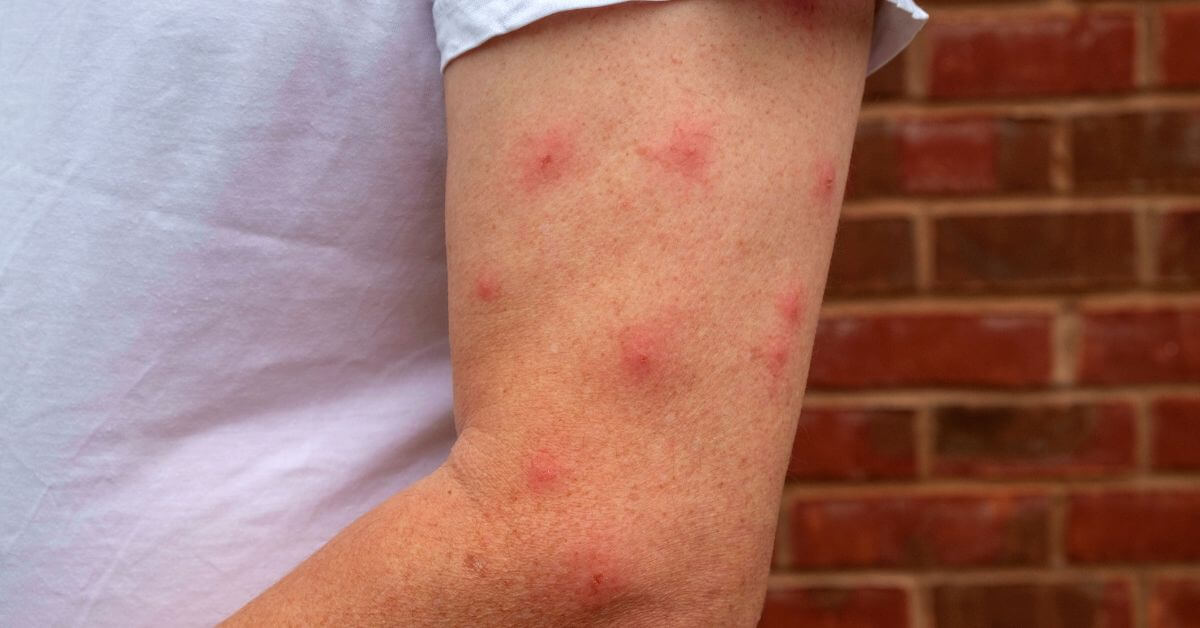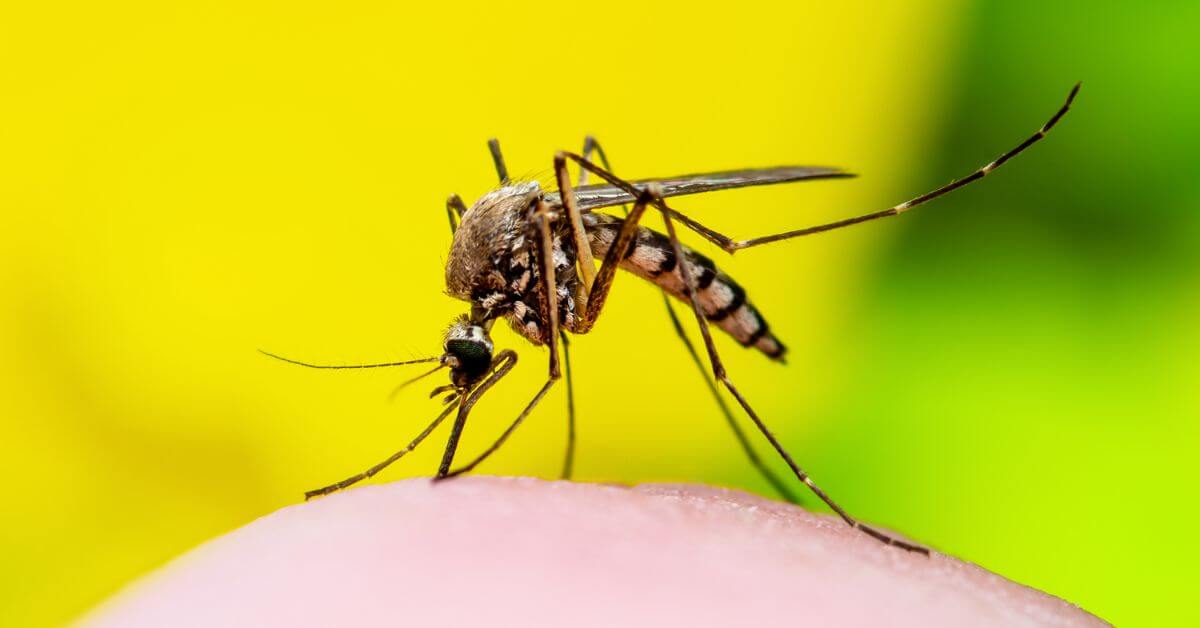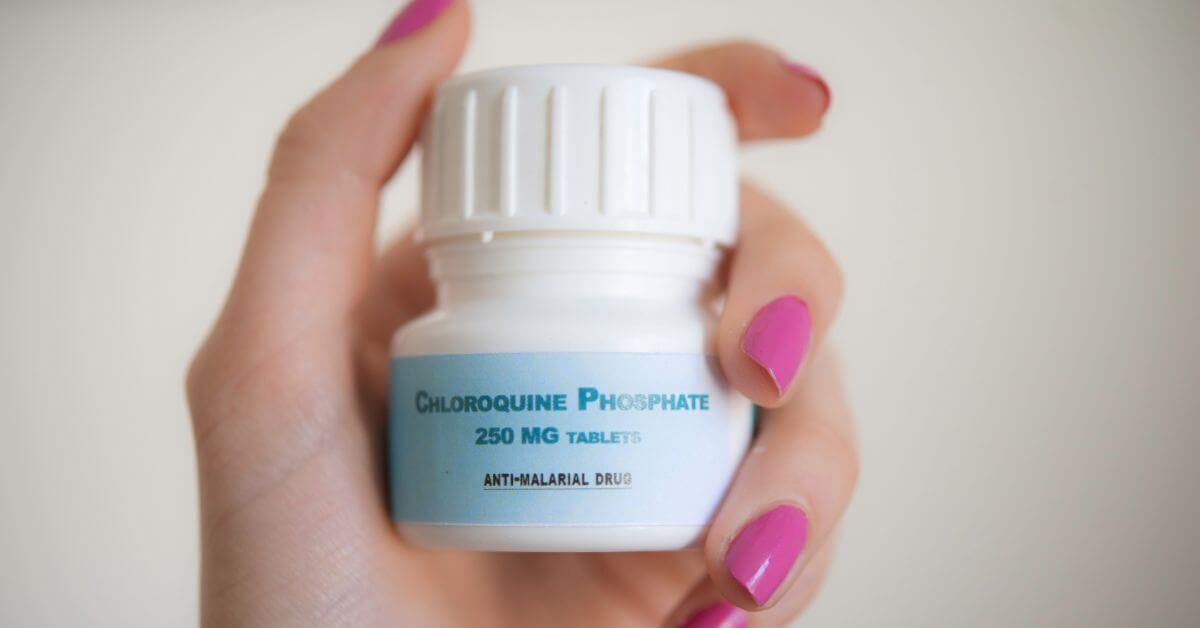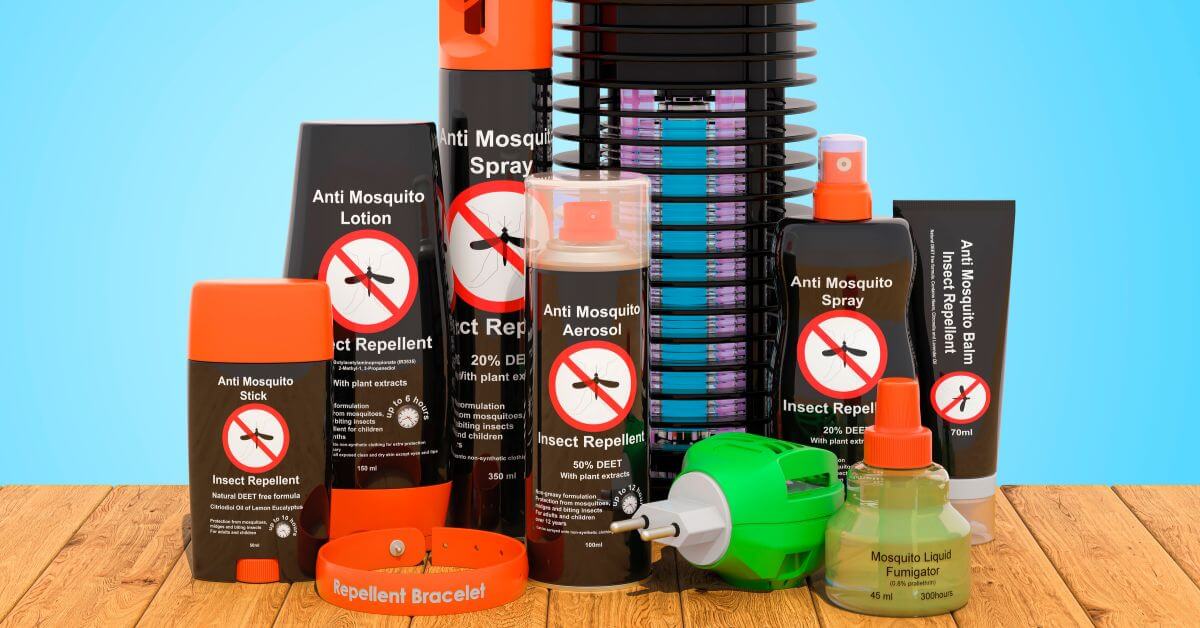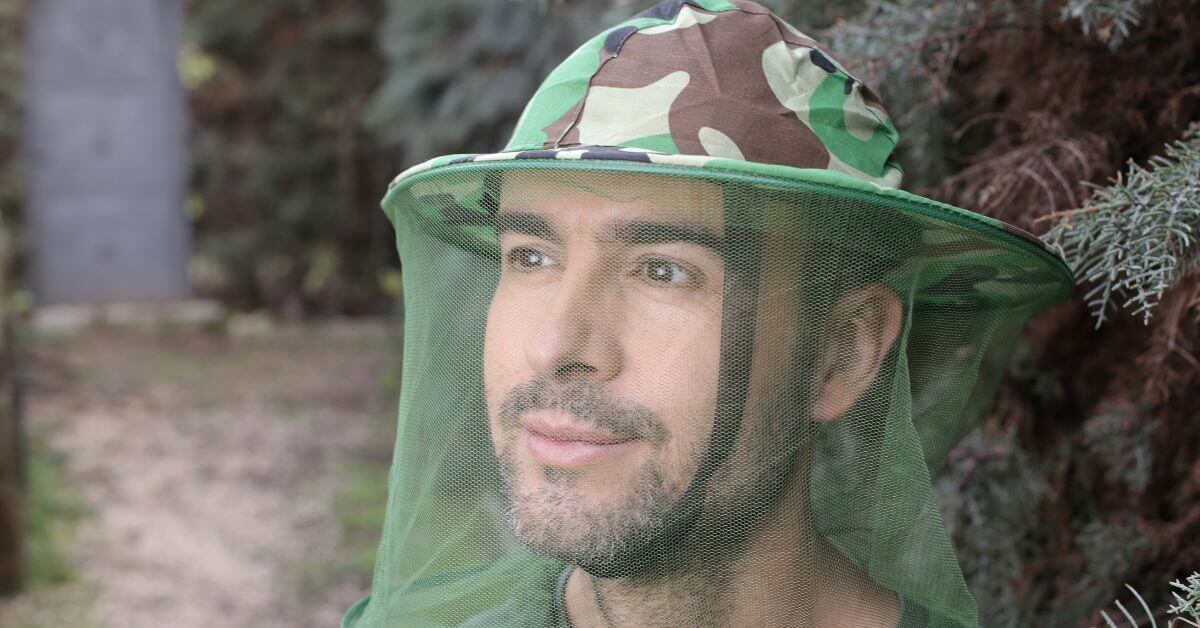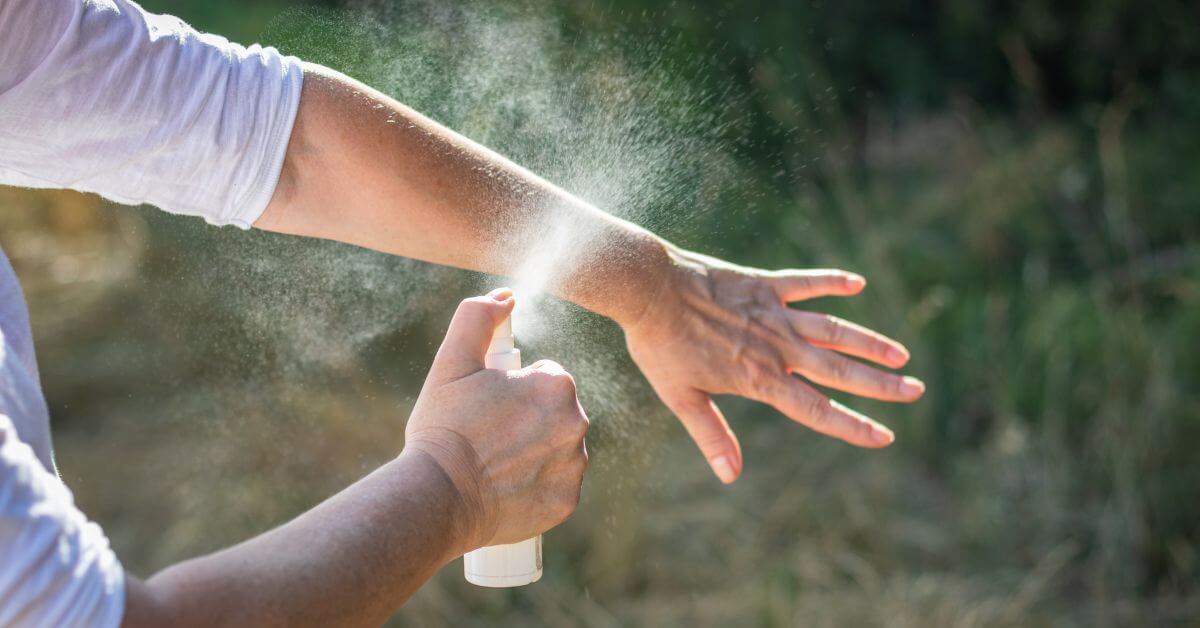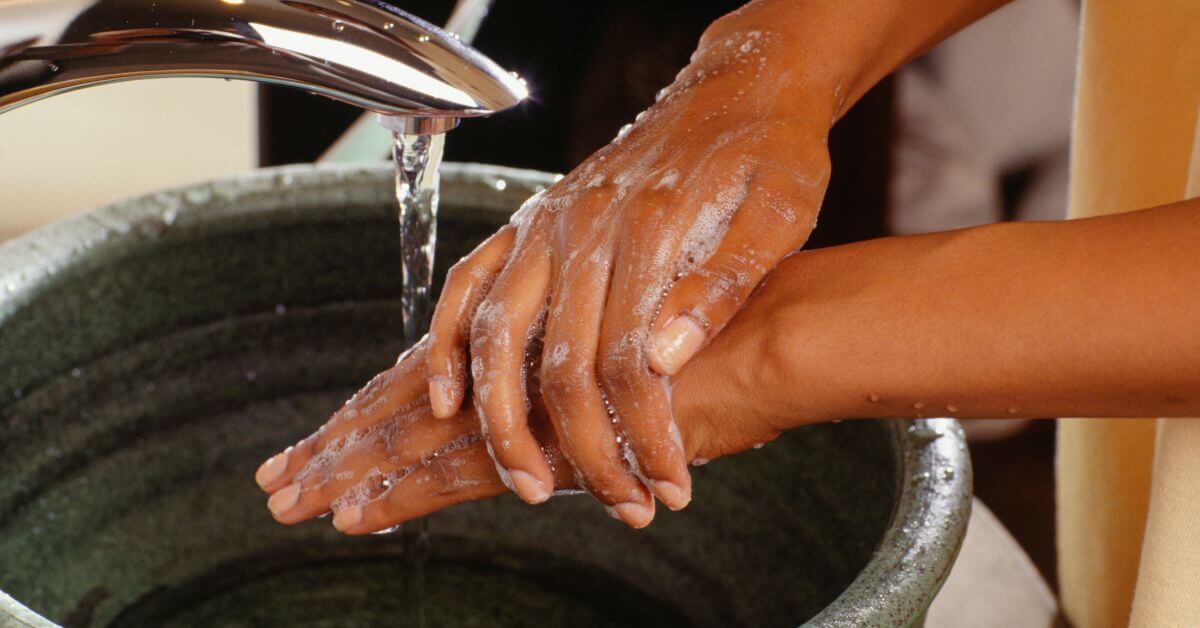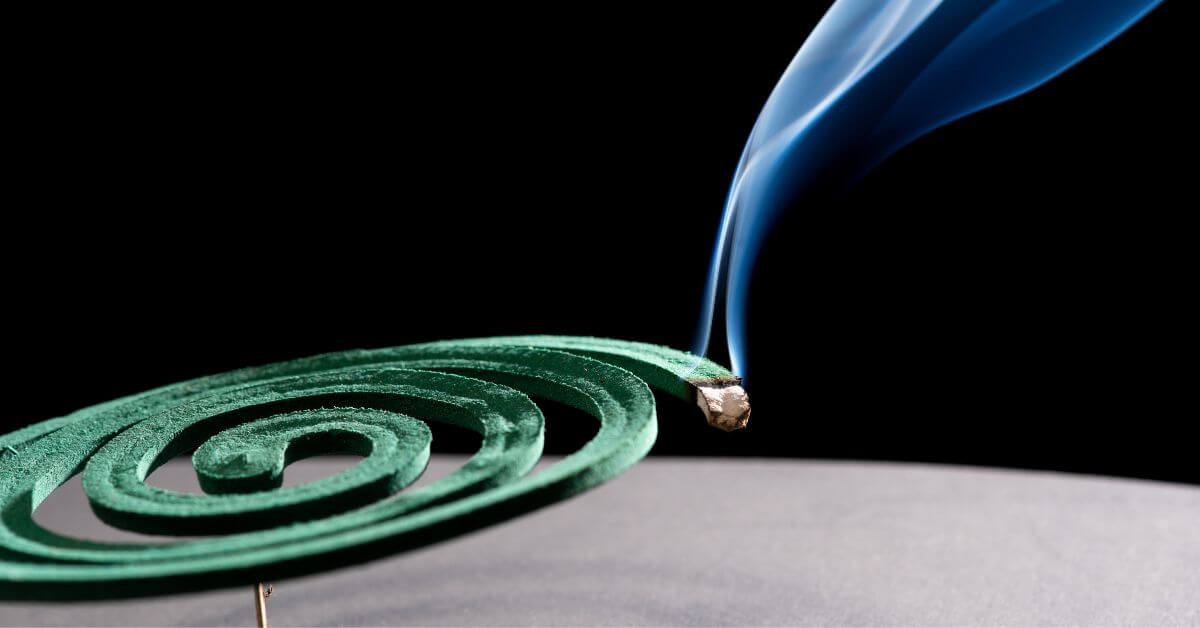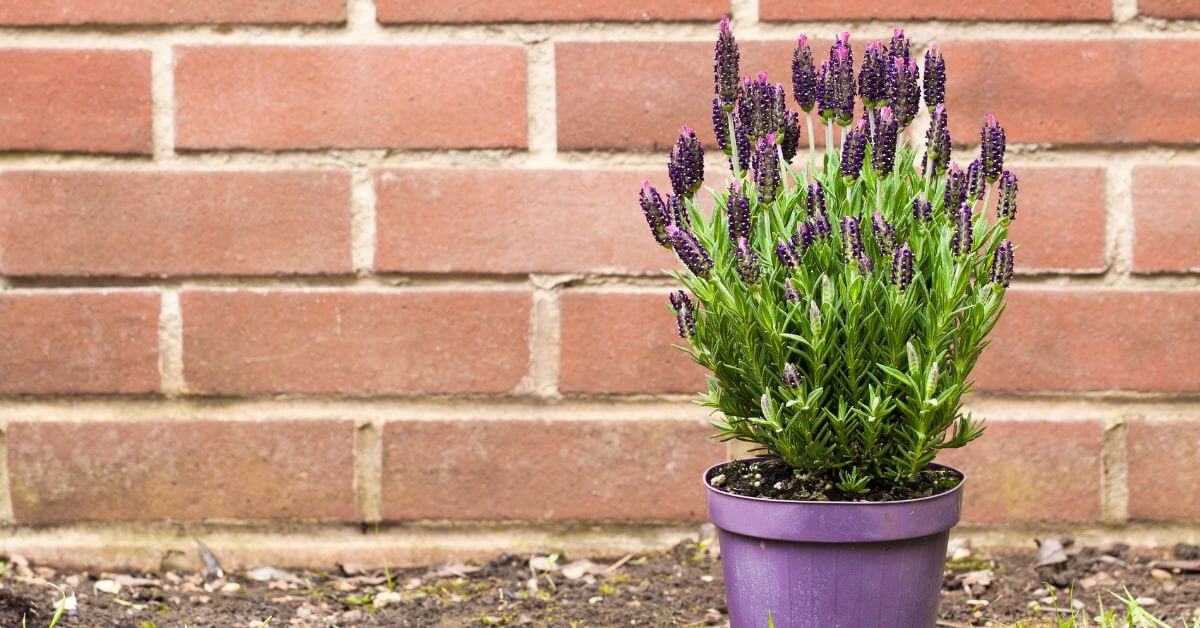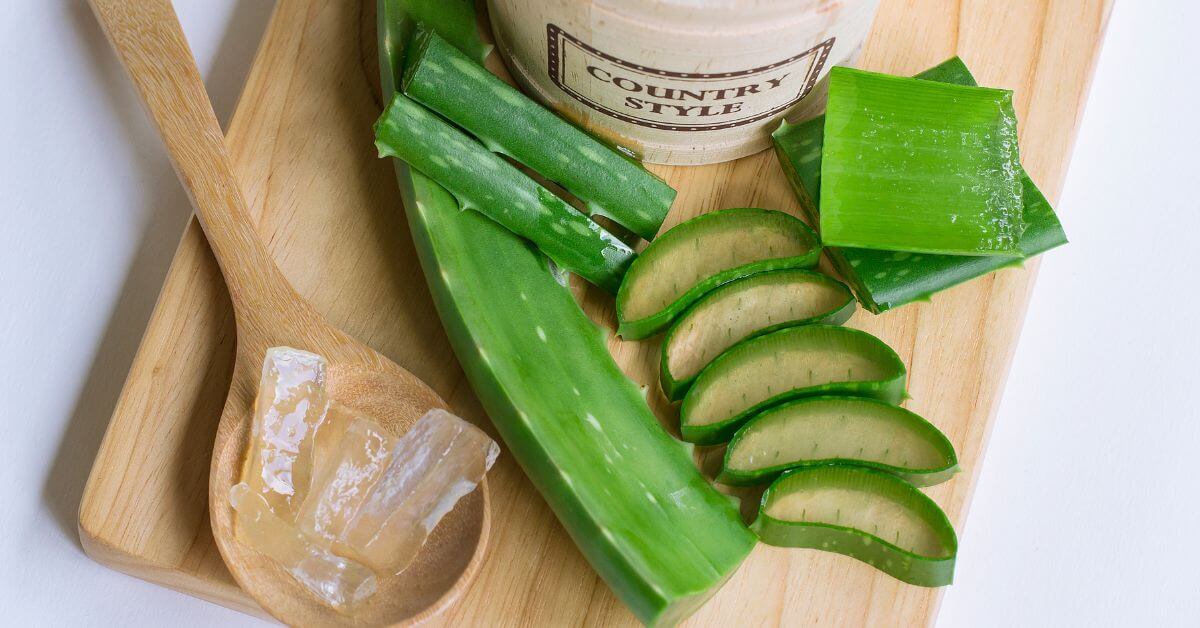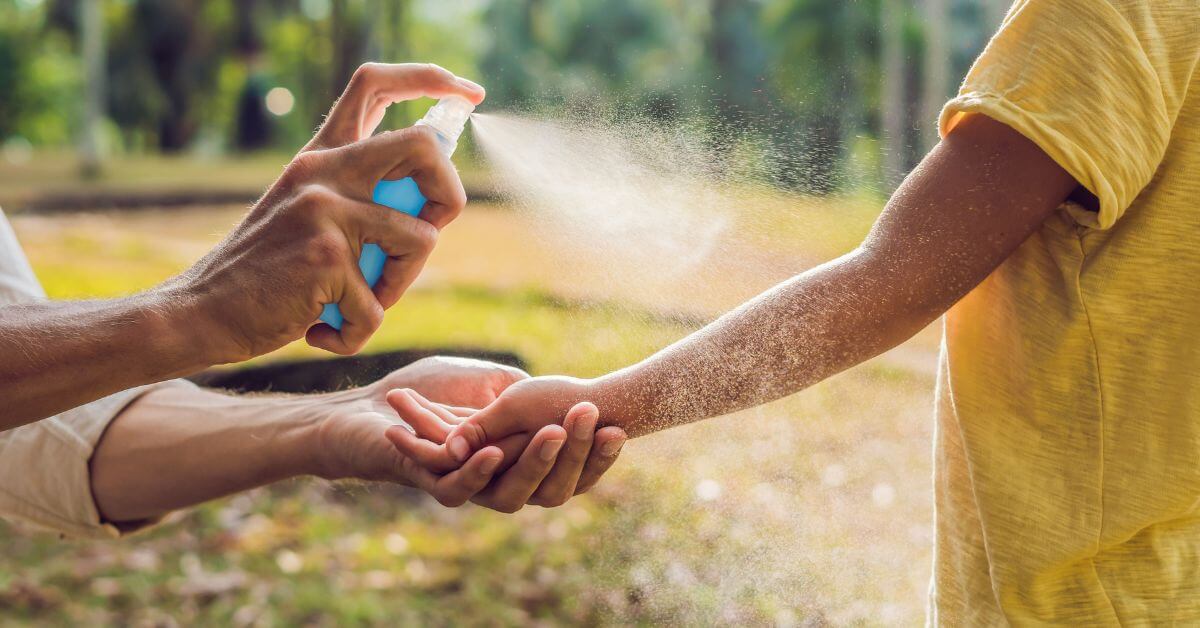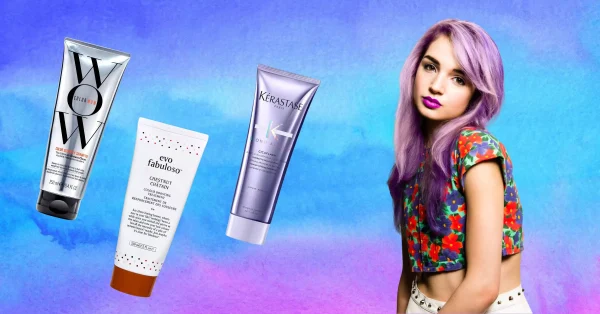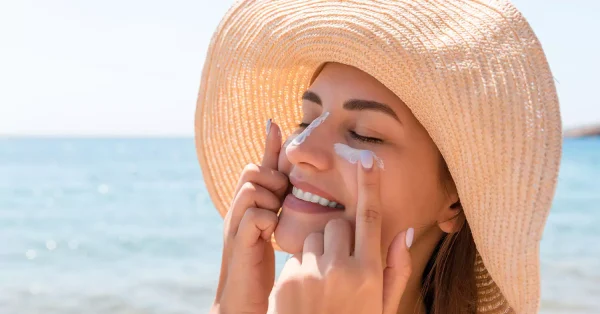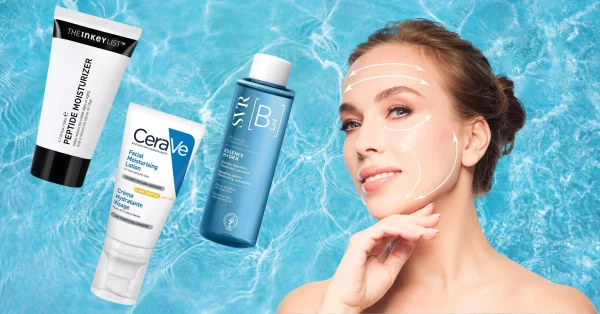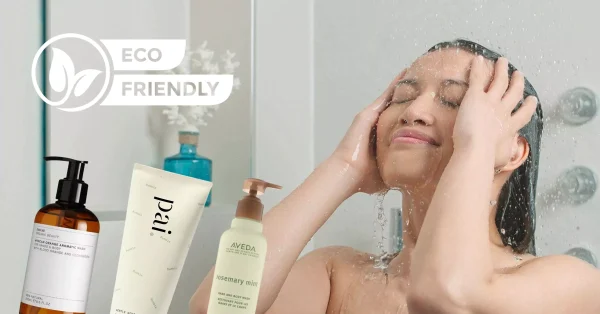Summer’s biggest buzz kill
You know how it goes.
First, you feel a tiny pinprick on a patch of bare skin. Instinctively you slap the location of the annoyance with your hand, only to reveal the squished blood-filled body of a tiny mosquito.
You try to forget about it, but the small red lump starts to swell, and you can’t resist the urge to scratch. Bad call, and you know it.
Five minutes later, the once small benign red lump has inflated to the size of a raging volcano erupting with wave after wave of molten itching. You try touching a cold beer against the infected site, a cube of ice, someone suggests you rub it with milk, another disagrees, saying vinegar is best. You try both, but the bite continues to burn like a scrub fire on a dry prairie.
If you had a saw, you would happily remove the infected limb.
Welcome to mosquito season.
Different reactions
For some people, mosquitoes are nothing more than an annoying pain in the ass (sometimes literally) to be endured while taking full advantage of the great outdoors in summertime.
For others, a single piercing by a tiny mosquito proboscis can mean oozing yellow lumps that can blister and itch for weeks. In extreme cases, a mosquito bite might even mean a life-saving dash to the emergency room.
And we’re not even talking about mosquitoes that carry life-threatening diseases like malaria, encephalitis, yellow fever, dengue fever, zika virus, West Nile virus, and filariasis (also known as elephantiasis). We’re only talking about little buzzing annoyances that can turn your fishing trip or garden BBQ into a nightmare.
However, in some parts of the world, mosquitoes are far more deadly than mere annoyances.
According to the U.S. Centers for Disease Control and Prevention, mosquitoes are ‘the world’s deadliest killers’ and are directly involved in the deaths of over 700,000 people every year.
Although the varieties of mosquitoes that carry deadly infections are limited to certain geographical areas, those areas are growing and changing due to climate change and human interaction.
That’s why, understanding the importance of taking preventive measures and finding effective solutions to avoid mosquito bites and alleviate discomfort is crucial for enjoying a mosquito-free summer.
Mosquitoes 101
Mosquitos are annoying, painful, buzz-killers. They might be the persecutors of pleasurable picnics, the wreckers or radical rafting trips, or the bushwhackers of barbeques, but isn’t it good to know as much as you can about your enemy?
That’s why we’ve compiled a short selection of facts about mosquitoes to help you get to know them better, and hopefully how to avoid them.


- Mosquitoes undergo a life cycle consisting of four stages: egg, larva, pupa, and adult. Female mosquitoes lay their eggs on or near water sources, such as stagnant ponds, puddles, or containers holding water. These eggs hatch into larvae within a few days. The larvae, commonly known as wigglers, live in the water, feeding on organic matter and microorganisms.
- As the larvae grow, they molt several times until they enter the pupal stage. Pupae, often referred to as tumblers, are comma-shaped and reside at the water’s surface. During this stage, they don’t feed and undergo metamorphosis, transforming into adult mosquitoes.
- After a few days, the adult mosquito emerges from the pupal case, rests on the water surface, and allows its wings to dry and harden. Once ready, the mosquito takes flight, seeking out a mate and a source of nourishment. While both male and female mosquitoes feed on plant nectar, only female mosquitoes require a blood meal to obtain the necessary proteins for egg development.
- Female mosquitoes have specialized mouthparts called proboscis, which they use to pierce the skin of animals or humans to access blood. They are attracted to hosts by body heat, carbon dioxide, and various chemical cues. After obtaining a blood meal, females rest for a short period before laying their eggs on or near water, starting the life cycle anew.
- Mosquitoes are most active during dusk and dawn when the temperature and humidity are favorable. They prefer areas with standing water for breeding, but they can also fly significant distances in search of suitable environments.
Understanding the life cycle and habits of mosquitoes is crucial for implementing effective mosquito control measures and minimizing their impact on human populations – and your grandma’s outdoor birthday party.
Global distribution of mosquito varieties and the diseases they cause
Different species of mosquitoes are prevalent in various regions around the world.
Although there are more than 3,500 species of mosquitoes, here are some key species known to be common in specific areas and the diseases they transmit. It’s also worth noting, that of the 3,500 species, only about 100 species are known to bite humans.
Anopheles mosquitoes
Found globally but more prevalent in tropical and subtropical regions.
Known as the primary carriers of malaria.
Species such as Anopheles gambiae and Anopheles funestus are particularly associated with malaria transmission in Africa.
Aedes mosquitoes
Found in tropical and subtropical regions but also present in temperate climates.
Aedes aegypti is known as the primary vector for dengue fever, Zika virus, and yellow fever.
Aedes albopictus, also known as the Asian tiger mosquito, is an aggressive biter and can transmit diseases like dengue and chikungunya.
Culex mosquitoes
Widely distributed across the globe, including both temperate and tropical regions.
Culex pipiens and Culex quinquefasciatus are common species that transmit diseases like West Nile virus and filariasis.
Anopheles quadrimaculatus complex
Found predominantly in North America.
Various species within this complex are known to transmit malaria parasites to animals, including humans.
Culiseta mosquitoes
Found in temperate regions and can tolerate cooler climates.
Culiseta longiareolata is one species known for its ability to transmit arboviruses – these include California encephalitis, Chikungunya, Dengue, Eastern equine encephalitis, Powassan, St. Louis encephalitis, West Nile virus, Yellow Fever, and Zika virus.
NOTE – It’s important to understand that the prevalence of mosquito species can vary within regions, and different species may overlap in certain areas.
Health risks posed by mosquitoes
You should also keep in mind that mosquito-borne diseases are not limited to specific regions and can potentially spread to new areas.
Protecting yourself from mosquito bites is essential, not only while traveling to high-risk areas but also in regions where these diseases may be present.
This includes using effective mosquito repellents, wearing appropriate clothing that covers the skin, using bed nets, and eliminating stagnant water sources to prevent mosquito breeding.
By taking preventive measures to avoid mosquito bites, you can significantly reduce their risk of contracting mosquito-borne diseases.
So, what are the diseases you should worry about?
Mosquitoes are responsible for transmitting a whole range of diseases, however, the most common ones recorded globally are Malaria, Dengue Fever, and Zika Virus.
Malaria
Malaria is a life-threatening disease caused by parasites transmitted through the bites of infected Anopheles mosquitoes. It is prevalent in many tropical and subtropical regions, particularly in sub-Saharan Africa. Malaria can cause high fever, chills, flu-like symptoms, anemia, and, if left untreated, can lead to severe complications and even death.
Using mosquito repellents, sleeping under bed nets, and taking appropriate antimalarial medication when traveling to high-risk areas are essential preventive measures.
Dengue Fever
Dengue fever is a viral infection transmitted by Aedes mosquitoes, primarily Aedes aegypti. It is prevalent in tropical and subtropical regions, including parts of Southeast Asia, the Pacific Islands, and the Americas. Dengue fever can cause severe flu-like symptoms, including high fever, severe headache, joint and muscle pain, rash, and in severe cases, it can lead to Dengue hemorrhagic fever or Dengue shock syndrome.
Preventive measures such as using mosquito repellents, wearing protective clothing, and eliminating mosquito breeding sites are crucial in reducing the risk of dengue infection.
Zika Virus
Zika virus is another mosquito-borne disease primarily transmitted by Aedes mosquitoes, particularly Aedes aegypti and Aedes albopictus. While Zika virus infections are typically mild, they can have severe consequences for pregnant women and their unborn babies.
Zika virus infection during pregnancy can lead to birth defects, including microcephaly, and other neurological disorders in infants.
To lessen the risk of infection you should take measures such as using mosquito repellents, wearing long-sleeved clothing, and practicing safe sexual practices to prevent transmission are crucial, especially for pregnant women or those planning pregnancy.
Protecting yourself against mosquitoes
The best protection against mosquito-borne diseases is to ensure that you’re not bitten in the first place.
For some people, taking simple precautions like wearing the right clothing or applying a mosquito repellant, might be enough – it’s true, some people are never bothered by mosquitoes depending on multiple factors like blood type, diet, body type, and even the amount of CO2 exhaled.
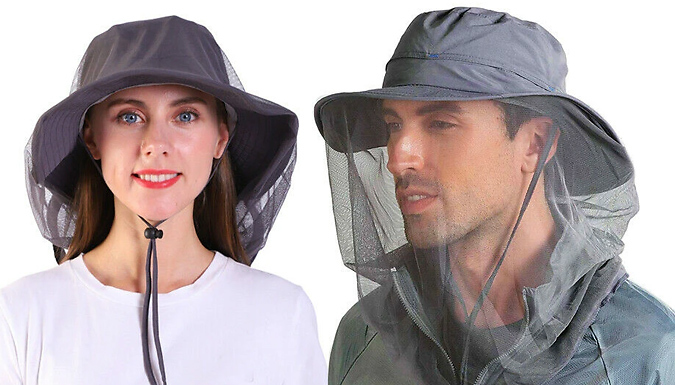
Anti-Mosquito Face Net Hat
Liberates your face from flying insects, featuring a practical nylon mesh face guard that offers 360-degree protection. Ideal for outdoor activities like fishing and hiking.
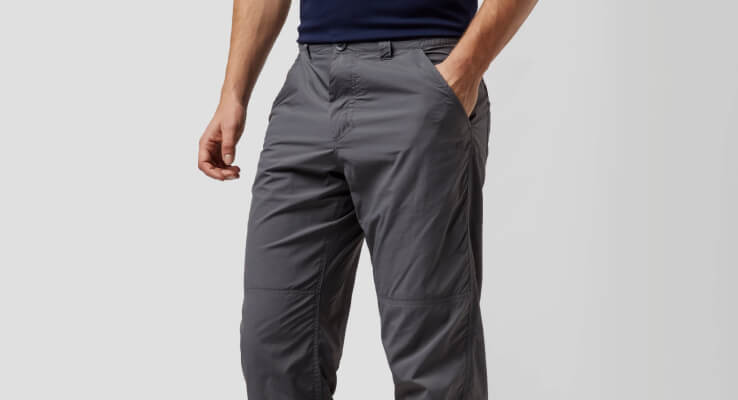
Craghoppers Men's Nosi Trousers
Stay protected and comfortable on your travels. The Craghoppers Men's Nosi Trousers are lightweight, comfortable, sun protective and have an insect repellent treatment.
Clothing
You don’t have to dress like a safari guide when going to grandma’s birthday party, but wearing appropriate clothing is an effective way to prevent mosquito bites and reduce the risk of mosquito-borne diseases.
Here are some types of clothing that can help protect against mosquito bites.
Long sleeves – Opt for lightweight, loose-fitting long-sleeved shirts or blouses. This clothing style provides a physical barrier, minimizing the exposure of your arms to mosquitoes.
Long pants – Wear long pants made of lightweight and breathable fabrics. Tucking the pant legs into socks or boots adds an extra layer of protection, preventing mosquitoes from reaching your legs.
Socks – Wearing socks can help protect your feet and ankles from mosquito bites. Choose socks that cover your ankles and opt for thicker materials to reduce the chances of mosquitoes biting through the fabric.
Hats – Wearing a broad-brimmed hat may not stop mosquito bites, but it can help you with excessive sweating in hot climates. Excessive sweat buildup (shower as often as you can) can attract mosquitoes. If you’re in an area with excessive mosquito activity, you might want to consider a net covering for your face.
Colors – While the science may be inexact, many experts believe that it’s important to wear light-colored clothing in the presence of mosquitoes. When choosing your light-colored clothing also consider how tightly woven the fabric is as tight weaves are more effective at preventing mosquito bites (but not always).
Scents – Also, it’s probably best to avoid wearing floral or fruity scents in perfumes, skin care products, shampoos, or colognes.
You can also buy a range of clothing that has been treated with mosquito repellents and insecticides. However, before you purchase mosquito protective clothing it’s best to read the labels and check exactly how the material has been treated.
Some manufacturers use Permethrin – a synthetic insecticide that targets the adults and larvae of many biting insects. However, you should check the levels of Permethrin used in the garment’s manufacturing process. Although labeled as safe by the US Environmental Protection Agency (EPA) its use is still hotly debated in many scientific circles.
It is important to carefully follow the manufacturer’s instructions regarding the treatment and reapplication of such clothing.
Insect repellents
Mosquito repellents come in a wide variety of forms, applications methods, levels of effectiveness, and considerations to think about before you choose the right one for you.
While some repellents offer effective protection, there are also others that are nothing more than snake oil. That’s why it’s good to be aware of the best types on the market.
Mosquito Sprays
Mosquito-repellent sprays are widely used and come in aerosol or pump spray bottles. Efficient sprays contain active ingredients like DEET (N,N-diethyl-meta-toluamide), picaridin, or IR3535, which repel mosquitoes, or their bites when applied to exposed skin and clothing.
These sprays are generally effective and provide long-lasting protection, with the duration of effectiveness varying based on the concentration of the active ingredient.
It is important to follow the instructions for application and reapplication intervals as recommended by the manufacturer.
While generally safe when used as directed, it is advisable to avoid spraying directly on the face and to wash off the repellent after returning indoors.
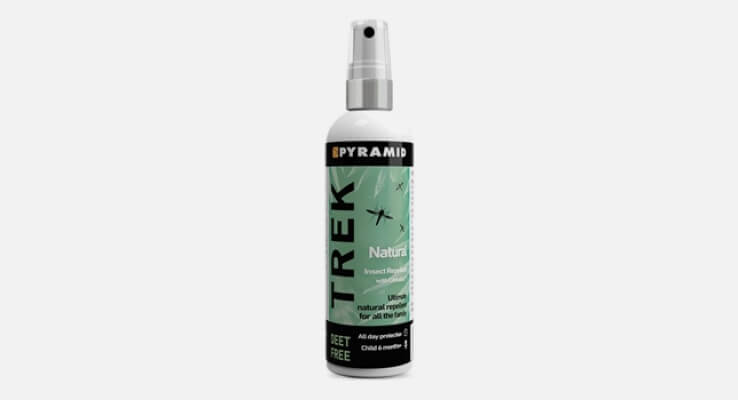
Pyramid Trek Natural Insect Repellant
A DEET-Free and alcohol-free alternative with long-lasting protection for up to 10 hours. Formulated with the plant-based repellent Citriodiol™ (Oil of Lemon Eucalyptus), it repels mosquitoes, midges, ticks, sand flies, black flies, and stable flies, while being gentle on the skin and suitable for children aged 6 months and above.

Lifesystems® Expedition Max Mosquito Repellent
An effective, 50% DEET insect repellent spray that provides long-lasting protection and is ideal for extreme tropical conditions. Suitable for children aged 2 years+, you can protect your whole family for up to 8 hours per application.
Mosquito Lotions
Anti-mosquito lotions are similar to sprays but have a creamy or lotion-like consistency. They are applied by rubbing the product directly onto the skin. The active ingredients and effectiveness are like those found in sprays.
Lotions may be preferred by individuals who want a more controlled application or have concerns about inhaling aerosol sprays.
As with sprays, it is important to follow the instructions for application and consider the need for reapplication based on the duration specified by the product.

Mosquito Wipes
Wipes are pre-moistened towelettes or tissues that are individually packaged and can be quite effective, especially for hikers, anglers, and safari lovers. They are convenient for on-the-go use and provide a portable solution for applying repellent to the skin.
With similar ingredients to those found in sprays and lotions, wipes are an easy way to apply effective protection.
However, the effectiveness may vary depending on the quality of the wipe and the distribution of the repellent on the skin. It is important to thoroughly apply the wipe to exposed skin areas for optimal protection.
Keep in mind that the effective duration and reapplication requirements may vary among different brands.
Instructions for safe mosquito repellent use
Many ingredients in mosquito repellents contain chemicals that may be harmful in large doses. That’s why when using any mosquito repellent, you should consider the following safety considerations.
- Carefully read the product label and follow the instructions for proper use, including application guidelines, age restrictions, and reapplication intervals.
- Apply mosquito repellents in well-ventilated areas to minimize inhalation exposure.
- Avoid applying repellents near the eyes, mouth, and open wounds. Take extra caution when applying repellents on children, ensuring minimal exposure to sensitive skin areas.
- If using a new repellent for the first time, consider performing a patch test on a small area of the skin to check for any adverse reactions or skin sensitivity.
- When using sunscreen and mosquito repellent simultaneously, apply sunscreen first, let it absorb into the skin, and then apply the mosquito repellent separately. This helps to avoid interference with the effectiveness of both products.
- When returning indoors, wash off the repellent from the skin using soap and water.
Natural repellents
It is also worth noting that natural alternatives to chemical-based mosquito repellents also exist. Repellents containing essential oils like citronella, eucalyptus, or lemon eucalyptus, are readily available.
While they may offer some level of protection, their effectiveness and duration can vary.
It is important to review the product label and research the specific essential oils for safety considerations, especially for use on children or individuals with sensitive skin.
If in doubt, book a consultation with an authoritative medical professional or a designated tropical medicine bureau.
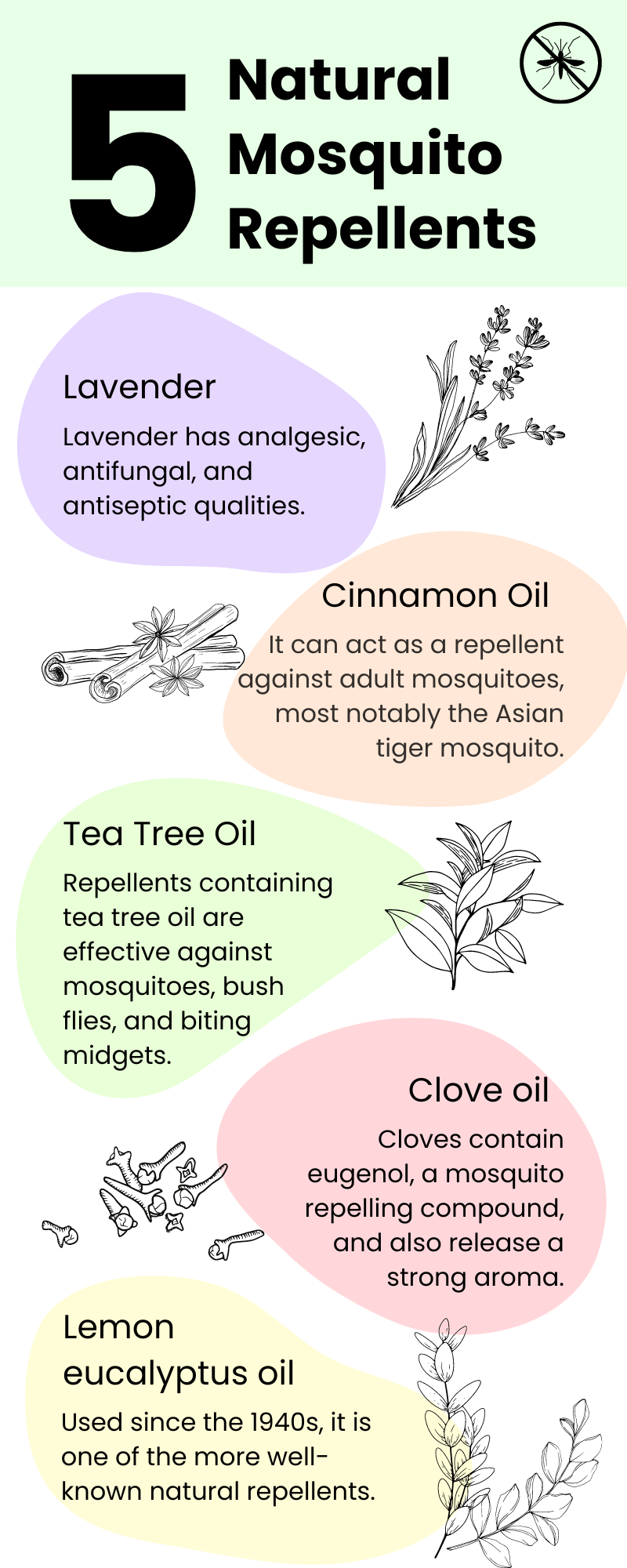
Removing mosquito breeding sites
It is important that you get rid of standing water where mosquitoes lay their eggs and breed.
Mosquitoes need water to grow and multiply, so if we eliminate their breeding grounds, we can help reduce the number of mosquitoes around our homes.
You don’t have to live beside a lake or pond for mosquitos to breed – they’re not fussy where they lay their eggs. A bucket half full of rainwater or an overflowing drain is every bit as good as a river or lake for a mosquito to lay her eggs.
Here are some practical tips to reduce mosquito breeding grounds.
- Regularly empty and clean any containers that can collect water, like flowerpots, buckets, or toys left outside. Scrub the inside of the containers to remove any mosquito eggs or larvae.
- Clean out clogged gutters and make sure they are draining properly. Remove any debris or leaves that can trap water. Also, check outdoor drains and make sure they are clear and flowing freely.
- Store items like wheelbarrows, old tires, or unused containers upside down, or cover them tightly. These items can collect rainwater and become perfect breeding spots for mosquitoes.
- If you have a swimming pool, make sure it is properly maintained. Keep it clean and chlorinated to prevent mosquitoes from laying eggs in the water. If you have an inflatable or plastic pool, empty it when not in use.
- Change the water in bird baths at least once a week to prevent mosquito breeding. Alternatively, you can use a small pump to keep the water moving, as mosquitoes don’t like moving water.
- Repair any outdoor leaks, such as leaky faucets or pipes. These can create pools of stagnant water that mosquitoes can use for breeding.
- If you collect rainwater in barrels for gardening, make sure they are covered with tight-fitting lids or mesh screens. This prevents mosquitoes from accessing the water to lay their eggs.
- If you have a pond or decorative water feature, consider using products that are safe for fish and plants to prevent mosquitoes from breeding. You can also introduce mosquito-eating fish, like gambusia (mosquitofish), which can help control mosquito larvae.
Remember, even small amounts of standing water can attract mosquitoes and allow them to breed.
By regularly checking and eliminating potential breeding grounds around our homes, we can significantly reduce the mosquito population and make our outdoor spaces more enjoyable and mosquito-free.
Managing mosquitos in outdoor spaces
Landscaping techniques can play a role in discouraging mosquitoes from outdoor areas, like gardens, patios, and poolsides.
Certain plants are known to have mosquito-repellent properties and including them in your landscaping can help deter mosquitoes. Plus, there are also some simple tips around the outside of your home or property to keep your mozzie problem to a minimum.
Here are a few examples of what to plant and what to do.
- Citronella grass emits a strong scent that mosquitoes dislike. Planting citronella around patios or seating areas can help repel mosquitoes.
- Lavender has a pleasant fragrance for us but repels mosquitoes. Planting lavender in your garden or near windows can help keep mosquitoes away.
- Marigolds contain a compound called pyrethrum, which is commonly used in insect repellents. Planting marigolds in your garden or around outdoor seating areas can provide some mosquito deterrence.
- Mosquitoes rest in shaded areas during the day, so keeping your yard well-trimmed and removing excess vegetation can reduce their hiding spots. Regularly prune bushes, trim shrubs, and mow the lawn to minimize areas where mosquitoes can seek shelter.
- Mosquitoes breed in stagnant water, so ensure proper water management in your yard.
- Avoid overwatering plants, as pooled water can become a breeding ground. Ensure proper drainage to prevent water from accumulating.
- Empty saucers under potted plants to avoid water collection.
- Clean and maintain birdbaths, fountains, or other water features regularly. Consider adding a small pump to keep the water flowing, as mosquitoes prefer still water for breeding.
- Installing mosquito nets or screens around outdoor areas can create a physical barrier that prevents mosquitoes from entering. Enclose porches, patios, or gazebos with fine-mesh screens to enjoy outdoor spaces without mosquitoes.
- Mosquitoes are attracted to certain types of light, so consider adjusting outdoor lighting to minimize their attraction. Use yellow or LED lights, as these are less attractive to mosquitoes compared to incandescent or fluorescent lights. Place lights away from seating areas to draw mosquitoes away from where you spend time outdoors.
Remember, while these landscaping techniques can help reduce mosquito populations, they probably won’t eliminate their presence completely.
It’s important to complement these measures with personal protection methods, such as using mosquito repellents, wearing protective clothing, and using mosquito nets or screens to ensure comprehensive mosquito control and create a more comfortable outdoor environment.
Dealing with mosquito bites
So, you’ve been bitten by a mosquito and are wondering what to do.
Hopefully, you’re one of the lucky ones who are not overly affected by mosquito bites, but in case you’re not, there are several ways to treat them using home remedies, over-the-counter products, and professional medical attention.
Home remedies
When it comes to soothing mosquito bites, several natural remedies can provide a level of relief.
Here are a few commonly used remedies along with their application instructions and potential benefits.
Ice
Applying ice to a mosquito bite can help alleviate itching and reduce swelling. Here’s how to use it.
Wrap a few ice cubes in a clean cloth or place them in a plastic bag. Gently apply the ice pack to the mosquito bite for about 10 to 15 minutes. Repeat as needed to relieve discomfort.
Aloe Vera
Aloe vera has soothing and anti-inflammatory properties that can help reduce itchiness and promote healing. Follow these simple steps.
Extract the gel from an aloe vera leaf or use store-bought aloe vera gel. Apply a small amount of the gel directly to the mosquito bite. Allow it to dry and leave it on the skin. Reapply as necessary.
Baking soda paste
Baking soda can help relieve itching and reduce inflammation caused by mosquito bites. Here’s how to make a baking soda paste.
Mix equal parts of baking soda and water in a small bowl to create a paste. Apply the paste directly to the mosquito bite. Leave it on the bite site for about 10 to 15 minutes, then rinse with water.


Honey
Honey has antimicrobial and anti-inflammatory properties that can soothe mosquito bites and other insect stings. Follow these steps.
Apply a small amount of honey directly to the mosquito bite. Allow it to sit for about 10 to 15 minutes before rinsing off. Alternatively, you can cover the bite with a bandage, adhesive tape, or even clingfilm to prevent the honey from rubbing off.
Oatmeal bath
Taking an oatmeal bath can help relieve itching and soothe multiple mosquito bites. Here’s what you need to do.
Add a cup or two of colloidal (floating) oatmeal to a bathtub filled with lukewarm water. Stir the water to evenly distribute the oatmeal. Soak in the bath for about 15 to 20 minutes. Pat your skin dry gently after the bath.
If that doesn’t work…
It’s important to note that while these natural remedies can provide temporary relief, they may not work for everyone, and individual responses may vary.
If you experience severe reactions, persistent itching, or any signs of infection, it is recommended to consult a healthcare professional for further guidance and treatment.
And remember, you’re better off preventing mosquito bites in the first place; use mosquito repellents, wear protective clothing, and take measures to reduce mosquito populations in your surroundings.
Over-the-counter products
There is a huge range of mosquito bite products available over-the-counter from pharmacies and supermarkets. Anti-itch creams, lotions, or gels containing ingredients like hydrocortisone or calamine can provide effective relief for most mosquito bites.
Here’s some information about these ingredients, their effectiveness, and precautions to consider.
Hydrocortisone
Hydrocortisone is a mild corticosteroid that helps reduce inflammation, itching, and redness associated with mosquito bites. Hydrocortisone creams or ointments are available over the counter in varying strengths.
The following guidelines and directions usually apply when using hydrocortisone products.
Apply a thin layer of the cream or ointment directly to the mosquito bite. Gently rub it in and allow it to absorb into the skin. Use it as directed on the product label or as advised by a healthcare professional.
Avoid applying hydrocortisone to broken or infected skin, the face, or sensitive areas without medical advice.
If using hydrocortisone for more than a few days or on large areas of the body, consult a healthcare professional.
Calamine lotion
Calamine lotion is a soothing topical formulation that contains a combination of zinc oxide and ferric (iron) oxide. It helps relieve itching and provides a cooling sensation when applied to mosquito bites.
Here’s how to use it.
Shake the bottle well before use. Apply a thin layer of calamine lotion directly to the mosquito bite. Allow it to dry on the skin and reapply as needed.
Calamine lotion is generally safe for use on children and adults but avoid applying it to broken skin or near the eyes or mouth.
Precautions when using over-the-counter medicines
If symptoms worsen or persist, seek medical advice. Both hydrocortisone and calamine are generally safe when used as directed. However, it’s important to note the following precautions:
- Carefully read the product label and follow the recommended usage instructions provided.
- Use these products sparingly and only as needed. Prolonged or excessive use can lead to skin thinning or other side effects.
- If you have specific medical conditions, are pregnant or breastfeeding, or have concerns about using these products, it’s advisable to consult a healthcare professional before use.
- While rare, some individuals may be allergic to hydrocortisone or calamine. If you experience any signs of an allergic reaction, such as rash, itching, or swelling, discontinue use and seek medical attention.
If you have a history of allergies or sensitivities to certain ingredients, it’s recommended to check the product label for any potential allergens or consult a healthcare professional before using any anti-itch creams, lotions, or gels.
Remember, if mosquito bite symptoms worsen, persist, or if you develop signs of infection, it’s important to seek medical advice for appropriate diagnosis and treatment.
Seeking medical attention
While most mosquito bites are harmless and only result in mild itching and irritation, there are certain situations where it is necessary to seek medical advice for mosquito bites.
Severe Allergic Reactions
If you experience a severe allergic reaction to a mosquito bite, such as difficulty breathing, swelling of the face or throat, dizziness, or rapid heartbeat, it is important to seek immediate medical help. These reactions could be signs of anaphylaxis, a severe and potentially life-threatening allergic response.
Signs of Infection
If a mosquito bite becomes infected, it may exhibit symptoms such as increasing redness, warmth, pain, swelling, pus, or the development of a spreading rash. If you notice any of these signs, it’s advisable to consult a healthcare professional. They can evaluate the bite and prescribe appropriate treatment, such as antibiotics if necessary.
Additionally, if you notice the site of a suspected mosquito bite is surrounded by a separate red ring it may be a sign that you’ve been bitten by a tick. Again, it’s advisable to seek professional medical advice.
Persistence of Symptoms
If the symptoms from a mosquito bite, such as itching, swelling, or discomfort, persist or worsen after a few days, it is recommended to seek medical advice. A healthcare professional can assess the bite and provide guidance on managing persistent symptoms.
Regarding treatments for mosquito-borne diseases, it’s important to note that specific treatments vary depending on the disease.
- Malaria – requires prompt medical treatment.
- Dengue fever – involves supportive care to relieve symptoms and complications.
- Zika virus – there is no specific treatment for Zika virus infection. Treatment primarily focuses on alleviating symptoms, such as rest, hydration, and over-the-counter pain relievers to reduce fever and pain.
As this is not a medical article, the above information is not complete, and the treatment options for mosquito-borne diseases can vary depending on factors such as the specific disease, geographical location, and individual patient characteristics.
If you suspect you have contracted a mosquito-borne disease or have concerns, it is recommended to consult a healthcare professional as soon as possible for accurate diagnosis and appropriate treatment.
Mosquito deterrent products
There are thousands of products designed to deter mosquitos that can be found in online shops all over the world.
And to take the sting out of shopping for mosquito products online, you can download the free Monetha online shopping app today.
Monetha lets you earn points every time you purchase with Monetha’s partner stores. The points can then be exchanged for a huge range of gift vouchers from the world’s top brands. They can also be used to invest in cryptocurrencies or to donate to charities.
That’s some nice relief right there.
Clothing
There is a vast range of insect-repelling clothes, mosquito-proof garments, and protective clothing available in hundreds of reputable online stores.
You can find a huge selection of them here.
Electrical devices
Electronic mosquito repellents, such as ultrasonic devices and mosquito traps, are innovative tools designed to help repel or capture mosquitoes.

Thermacell Halo Mini Mosquito And Midge Protector
Innovative devices that utilize heat to release a controlled amount of metofluthrin or allethrin, effectively repelling mosquitoes and creating a protected area from bugs through vaporized insecticide diffusion.
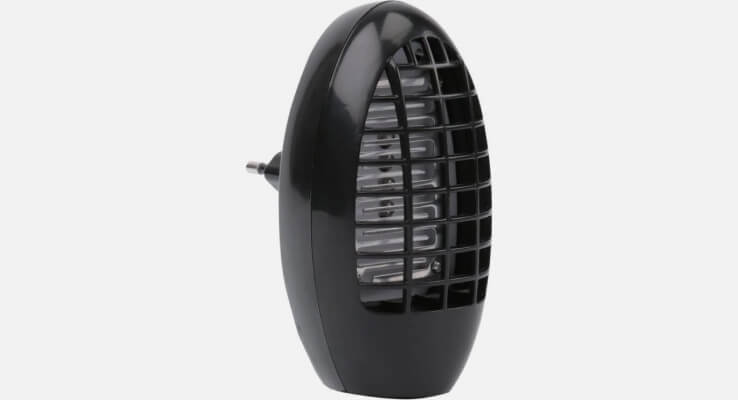
Olympia IV 104 UV-Mosquito Trap
Repels flying insects including mosquitoes and flies within a 20-meter range using ultrasound technology. It operates without generating smoke or odors, simply requiring to be plugged into a socket for convenient and energy-saving use.
From ultrasonic mosquito repellent devices that emit high-frequency sound waves to electronic mosquito traps, both come with pros and cons depending on their intended use, location, and ability to deal with large numbers of insects.
Sprays and lotions
There are various mosquito repellent sprays and lotions available in the market that can help protect against mosquito bites.
Here are a few examples.
- DEET-Based Repellents typically provide long-lasting protection, with effects lasting for several hours, depending on the concentration of DEET.
- Picaridin-Based Repellents provide effective protection against mosquitoes for several hours, similar to DEET-based products.
- Oil of Lemon Eucalyptus (OLE) Repellents as the name suggests are derived from the lemon and eucalyptus tree and protect against mosquitoes for several hours.
- Natural Repellents are plant-based essential oils, such as citronella, lavender, lemongrass, or geraniol, and generally offer shorter protection and may require more frequent reapplication compared to synthetic options.
- Candles and incense are usually made from natural ingredients and can be an effective and environmentally friendly option for repelling mosquitoes both indoors and outdoors.
It’s important to follow the instructions provided by the manufacturers for each specific product.
Consider factors such as the concentration of active ingredients, the environment you will be in, and the duration of protection required when selecting a repellent.
Additionally, consider any specific precautions or age restrictions mentioned on the product label.
Conclusion
As we discovered at the beginning of this article, different people have different responses to mosquito bites. For some people, a bite from a mosquito can cause unbearable itching and pain, for others, bites can lead to more serious issues, like malaria or dengue fever.
That’s why, when it comes to mosquitoes, avoiding being bitten in the first place is super important.
Whether that means using deterrent sprays, creams, or electronic devices, anti-mosquito clothing and nets, or even eliminating mosquito breeding grounds entirely, mosquitoes don’t have to be a major source of annoyance.
There are thousands of anti-mosquito products online to help you avoid the scourge of mosquitoes or to alleviate any pain if you have been bitten.

When you download the free Monetha online shopping rewards app, you’ll have everything you need at your fingertips. And the good news is that when you shop with Monetha’s online retail partners (there are over 2,000 of them) you’ll earn points that can be redeemed for a huge range of gift cards from the world’s top brands.
Or you can swap your points to invest in cryptocurrencies, and even to donate to a charity of your choice. That’s sure to take the sting out of any purchase.
And one more thing, be sure to stay up to date with the latest mosquito-related health alerts and guidelines whether you’re going on safari or staying at home and firing up the grill for grandma’s garden party.
Whatever your plans are for enjoying the great outdoors, remember to stay protected and always have a remedy at hand, just in case.
IMPORTANT NOTE:
When using mosquito repellent creams, sprays, candles, burners, or electrical devices always be sure to follow the instructions carefully. Also, when using medicines, either prescription or over the counter, carefully follow the directions on the packet or those given by a medical professional.
